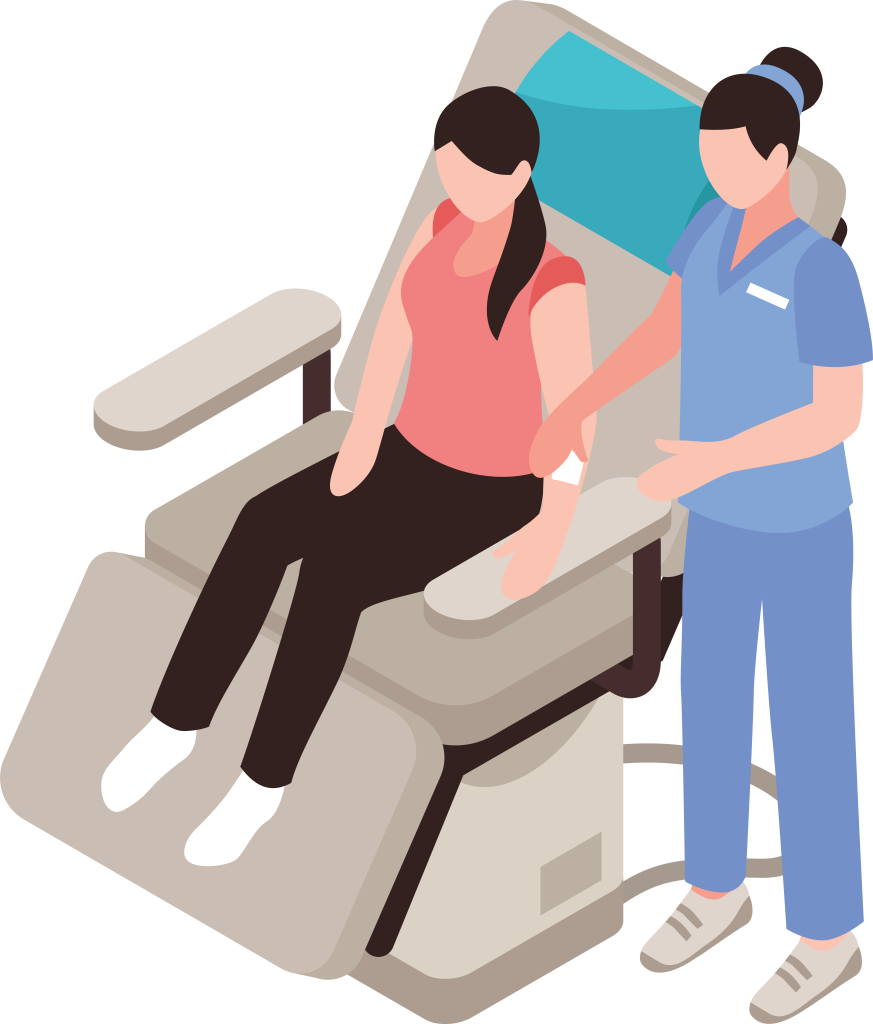
Full Blood Count (FBC) Test
£29.00
- Blood sample
- 15 Biomarkers
- Quick Results
Discover insights into your overall health with our Full Blood Count (FBC) test. This Complete Blood count test assesses key components such as red and white blood cells and platelets, providing valuable information about your immune system, oxygen transport, and clotting abilities.
Results: 1 day after sample arrival in lab
Phlebetomy Charges:
Leicester Clinic: NIL
Please visit our clinic at LE46QT to provide your sample.
Other Clinic: + £50.00
Choose from our range of clinics nationwide to have your blood taken from a vein in your arm by a healthcare professional.
Home Phelebetomy: + £80.00
A qualified nurse will visit you in your home to collect your blood sample from a vein in your arm.
**You must be at least 18 years old to purchase a Product and to provide a sample for testing.
What parameters are tested?
Haemoglobin
Discover the oxygen-carrying powerhouse of your blood. Haemoglobin levels are crucial for assessing your blood's ability to transport oxygen to every cell in your body.
Red Blood Count (RBC)
Measure the concentration of red blood cells, essential for oxygen delivery. An optimal RBC count is vital for overall health and well-being.
Red Cell Distribution Width (RCDW)
Assess the variation in size of your red blood cells. RDW helps identify potential health issues related to red blood cell uniformity.
Hematocrit (HCT)
Gauge the proportion of blood that is composed of red blood cells. HCT levels are pivotal for evaluating blood volume and potential anaemia.
Mean Corpuscular Hemoglobin (MCH)
Delve into the average amount of haemoglobin per red blood cell. MCH provides essential information about the oxygen-carrying capacity of your blood.
Mean Corpuscular Haemoglobin Concentration (MCHC)
Delve into the average amount of haemoglobin per red blood cell. MCH provides essential information about the oxygen-carrying capacity of your blood.
White Cell Count (WBC)
Dive into the defense system of your body. WBC count evaluates the number of white blood cells, offering insights into your immune system's strength.
Neutrophils
Neutrophils are the first responders to infections, acting quickly to engulf and destroy bacteria. Monitoring neutrophil levels helps assess the body's immediate immune response.
Lymphocytes
Lymphocytes play a central role in adaptive immunity, producing antibodies and coordinating immune responses. Monitoring lymphocyte levels provides insights into long-term immune defense.
Monocytes
Monocytes are versatile cells that transform into macrophages, engulfing and digesting pathogens and dead cells. Monitoring monocyte levels is crucial for assessing immune system readiness.
Eosinophils
Eosinophils are involved in combating allergies and parasitic infections. Elevated eosinophil levels may indicate an allergic response or parasitic infection.
Basophils
Basophils release histamine and other chemicals, contributing to the inflammatory response. Monitoring basophil levels aids in assessing allergic reactions and certain immune responses.
Platelet Count
Uncover the key to clotting and wound healing. Platelets play a crucial role in preventing excessive bleeding and maintaining vascular integrity.
Mean Platelet Volume (MPV)
Assess the average size of your platelets. MPV is an important marker for understanding platelet function and overall blood clotting ability.
How it works?

Do your test
Order conveniently and choose your preferred clinic. Our team will confirm your appointment, ensuring a seamless process.

Fast, accurate results
With our CQC-accredited lab, expect precise results delivered securely to your email within 24-48 hours.

Support your health
Our dedicated team is here to offer guidance, answer queries, and provide ongoing support tailored to your needs.
FAQs
Your FAQs Answered!
"Answers to common queries for your peace of mind"
The Full Blood Count test, is a common blood test that measures various components of your blood, including red blood cells, white blood cells, and platelets.
A Full Blood Count (FBC) test is performed to assess overall health and detect a range of disorders.
FBC helps diagnose conditions like anaemia, infections, and blood disorders, guiding healthcare professionals in providing timely and appropriate treatment.
The test typically includes measurements of red blood cells (RBC), white blood cells (WBC) and platelet count.
A small sample of your blood is drawn from a vein, usually in your arm, using a needle.
The blood is then sent to a laboratory for analysis.
- RBCs carry oxygen from the lungs to all parts of the body. Monitoring RBC count ensures efficient oxygen delivery.
- Low RBC count may indicate anaemia, a condition where the body lacks enough healthy red blood cells.
WBCs are key components of the immune system. Monitoring their count helps assess the body's ability to fight infections and illnesses.
An elevated WBC count may indicate the presence of an infection.
Got Questions? Ask Us!
Don’t see the answer you’re looking for? Reach out to us directly!
Our team is ready to assist you. Contact us now!

